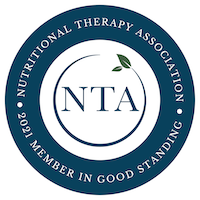Smoothies have been a popular breakfast and lunch item providing fiber, vitamins, antioxidants, and anti-inflammatory properties. Smoothies can be a great option for those who don’t eat many fruits and veggies during the day.
Although this meal is loaded with all the healthy things, I notice that many people don’t always feel too great after drinking their smoothie. Some feel bloated or may still feel hungry. Why is it that a drink filled with many fruits and vegetables can make someone feel worse?
There are a few important factors that some people miss when making a smoothie. Missing these factors can make digestion harder. Read below for what a smoothie should contain, how it should be consumed, and why these methods are best for digestion.
Smoothies that are jam packed with only fruit are delicious, but they are not nutrient dense, nor is it a balanced meal. If you’ve read some of my other blogs, you know that a balanced meal contains a protein, carb, and a fat. When these macronutrients are paired together, blood sugar is properly regulated. Adding protein and fat to your smoothie makes it a nutrient dense meal and will keep you fuller for longer.
A balanced smoothie contains:
- Berries for antioxidants, banana, and greens, or other veggies as a carb source. You can also add oats for a heartier smoothie.
- Avocado, greek yogurt, nuts, seeds, or nut butter as a fat source
- Collagen, protein powder, or milk as a protein source
The best way to drink a smoothie is to eat it! Read more here!
If you notice bloating after eating raw veggies and uncooked oats, smoothies may not be the best option for you. Typically, raw veggies and uncooked oats can be difficult for our body to digest. You’re better off skipping the smoothie and making an oatmeal bowl. Get your veggies in at lunch and dinner!
Be sure to follow these smoothie guidelines for optimal digestion and blood sugar purposes!



